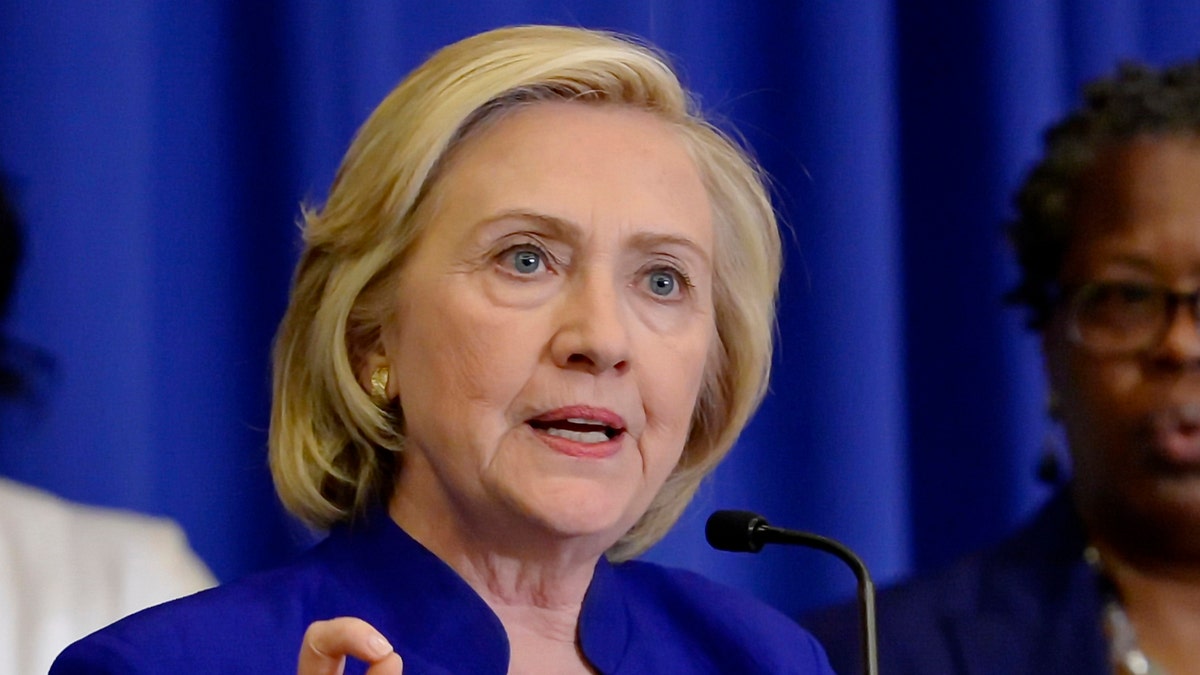
FILE - In this May 27, 2015 file photo, Democratic presidential candidate, former Secretary of State Hillary Rodham Clinton speaks in Columbia, S.C.
You don’t forget moments like this – the ones that come so unexpectedly, shoving a pit into your stomach. I was 21-years-old and nearing the due date for my husband Bryon and my first baby. That’s when the phone call came: “Kristi, your dad is stuck in a grain bin.” I knew instantly what it meant.
By the time I got to the farm, neighbors and friends had taken payloaders and ripped down the grain bin trying to find my dad. When they finally did, our neighbors started doing CPR until the EMTs took over. I followed the ambulance to the hospital with my family and the doctors fought to save him for hours. Nothing worked. That night, we lost my dad – this man who had seemed invincible to me.
Not too long after the accident, while we were still trying to pick up the pieces, our family received a letter from the IRS. Because of this tragedy, one that undermined our sense of security, the death tax was now about to undermine our financial security.
I could see that we had land that my dad started buying in high school and land my grandpa had bought decades before that. We had cattle and the machinery needed to farm the land and care for the cattle. But we didn’t have enough money in the bank to pay what the IRS was asking.
I have never understood why the federal government thought it was appropriate to go after families with this double tax – especially in a time of crisis. My family had already paid taxes on the equipment, the land, and any other assets. Now, we had to pay taxes on it again because my dad had died. It’s not right.
I couldn’t imagine losing the farm my family had built. After all, it was my dad’s dream to pass it on to us kids.
That’s why he got up at the crack of dawn almost every morning. He wanted to give us the opportunity to farm together, if we wanted to.
We needed the machinery to continue the operation and I could hear my dad’s voice telling me that selling land wasn’t an option either. After all, I can’t tell you how many times he said: “Don’t ever sell land. God isn’t making any more.”
To keep our family’s American Dream going, we were fortunate enough to get a loan, albeit one so large that it impacted nearly every decision we made for a decade.
I have never understood why the federal government thought it was appropriate to go after families with this double tax – especially in a time of crisis. My family had already paid taxes on the equipment, the land, and any other assets. Now, we had to pay taxes on it again because my dad had died. It’s not right.
This month, Hillary Clinton proposed a dramatic 65 percent increase to the death tax, pushing it to the highest point since 1981. She justifies this as a tax on the 1 percent, but all too often it is small businesses and family farms that are put into jeopardy for a few days’ worth of government spending.
Earlier this fall, the House Ways and Means Committee offered a blueprint for tax reform designed to grow families’ paychecks, the workforce, and the American economy. In doing so, we worked to shrink the tax burden for every family and streamline the tax code to make it more simple and fair. This includes eliminating damaging add-on taxes – most notably, the death tax.
No family should have to go through what ours did. Clinton’s proposal is a tax on the American Dream during a time of tragedy. Hardworking Americans deserve better.
